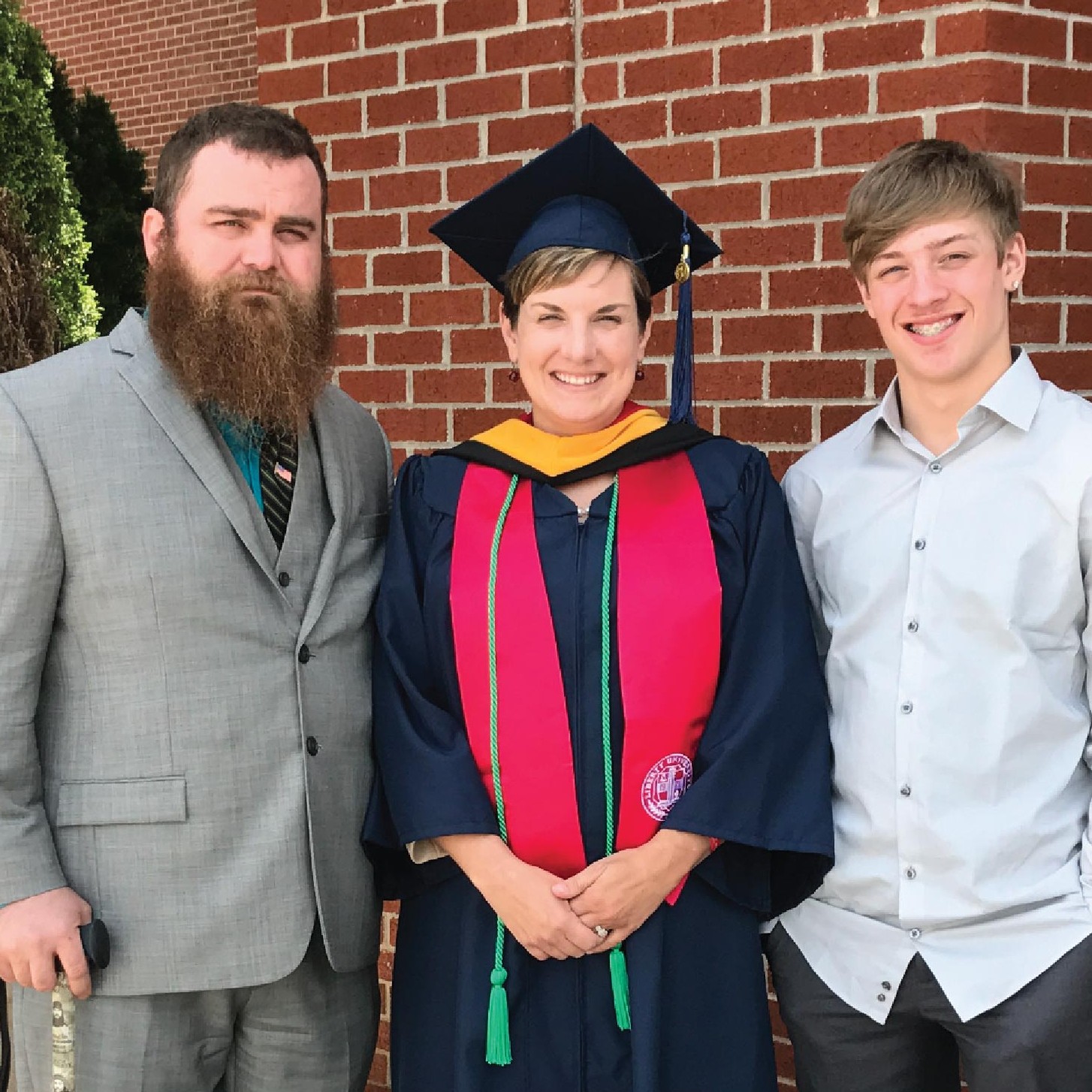AARP Hearing Center

When Emily Mather’s husband, Michael, returned home from his eleventh military deployment with a severe brain injury, she knew that everything was about to change. At the time, they were married for only three years: Michael was a forward observer in the U.S. Army after serving nearly nine years – and 10 deployments –with the United States Air Force. Emily was a 28-year-old mother earning an associate degree in human services.
“I never thought I was any kind of caregiver," Emily says. "I was just doing what I needed to do as a wife for my husband.”
Michael’s bullet injury spanned from his jaw to the back of his neck, requiring immediate surgery in Iraq. When he was medically discharged, Emily became his caregiver. She drove him to 6-7 doctor’s appointments each week, along with any other necessary procedures. Since Michael could not open his mouth, she prepared nutritional shakes for each of his meals. She helped him shower. She patiently handled his hypervigilant actions, like walking the perimeter of their home each evening. And, she decided to put her own life and education on hold because he needed her more.
“I knew I needed to stop working and stay home when my husband’s medication ran out one year. I walked into our bedroom, and he was shaking in bed. He had been out of the pills for three days and did just what the doctor told him – to send an email for a prescription refill,” she explained. “The doctor never responded, and I had to get the medication myself.”

Throughout her journey, Emily never viewed herself as a military caregiver – that is, until she encountered the Elizabeth Dole Foundation. The foundation, which raises awareness of military caregivers and provides essential resources, introduced Emily to a new community where she realized she was, in fact, not alone. And, in 2016, she became an official fellow in the state of Ohio.
As a fellow, Emily advocated on Capitol Hill on military and caregiving-related issues, strengthened her local community through volunteering events, and participated in a number of programs that helped both herself and her husband find solace and heal. It was an unforgettable experience, and one that continues to fuel her passion of supporting other military caregivers.

In her alumni years, Emily graduated with her bachelor’s degree in Psychology: Military Resilience, with a minor in Christian Counseling from Liberty University. The couple, now married for 18 years, lives in Polk County, Florida, where Emily intends to expand mentorship and grassroots efforts for military caregivers through both the Elizabeth Dole Foundation and AARP Florida.
“I am excited to help bridge the gap between military caregivers and the community as an AARP volunteer,” Emily mentioned. “I think it’s a really important step, because some caregivers are really young, and AARP has resources for caregivers no matter their age. I had no idea at the time when I needed help the most.”
Emily’s advice for caregivers? Take your time and find the right resources for both you and your veteran. Also, take care of yourself; it is easy to burn out while caring for a loved one, and your health is equally as important as theirs.
“You don’t get any training when you are a caregiver,” Emily explains. “Nobody tells you how to navigate the experience, so you come to rely on other caregivers in your community for help. It teaches you resilience every day.”
If you or someone you love is in need of caregiving resources, AARP Florida is in your community. Veterans, active duty, and military families can utilize AARP’s Military Caregiving Guide, and all Florida residents can access AARP Florida Family Resource Guide. To learn more about the Elizabeth Dole Foundation, please visit their website.































































